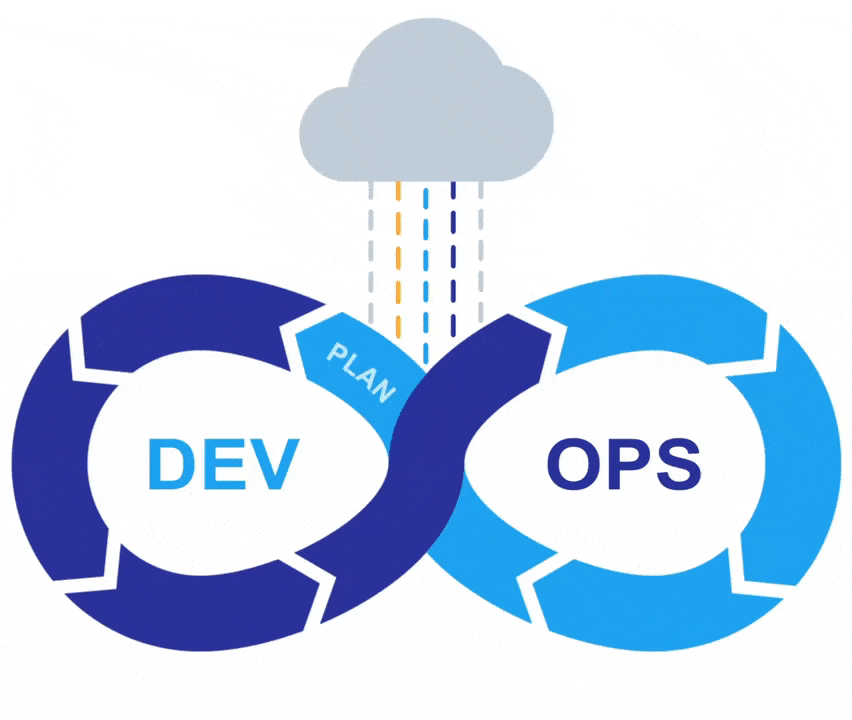Teams must follow key DevOps principles to fully realize the potential of DevOps ♾️.
 Yash Gaddamwar
Yash Gaddamwar
Development and operations teams working together is only part of DevOps. There's more to it than just tools and practices. New ways of working are adopted by teams as part of a mindset and cultural shift called DevOps.
The development of a DevOps culture enables developers to get closer to their end users by better understanding their requirements and needs. Maintenance requirements and customer needs are added to the development process by operations teams. DevOps refers to a set of core principles that enable DevOps teams to deliver applications and services faster and higher quality than traditional software development teams.
Create with the final outcome in mind
One of the core tenets of DevOps is customer centricity. This means that products or services are designed to solve real-world problems. Teams should not build in a ‘bubble’ or build software based on preconceived notions of how consumers will consume the software. Instead, DevOps should have a complete view of the product from ideation to deployment.
------------------------------------------
Automation
One of the most important practices in DevOps is automating as much as possible in the software development life cycle. This frees up time for developers to focus on writing code and creating new features.
Automation is a critical component of CI/CD pipelines and reduces human error and improves team productivity. Automated processes enable teams to continuously improve with shorter iteration times, allowing them to respond quickly to customer feedback.
------------------------------------------
Collaboration
A key premise of DevOps is collaboration. Development and operations teams merge into a cross-functional team that communicates, shares feedback, and collaborates throughout the development and deployment cycle. This often means that the development and operations teams merge into a single team that works throughout the entire application lifecycle. DevOps team members are responsible for ensuring quality results in all areas of the product. This leads to more "full suite" development, where teams are fully responsible for a feature or product across backends. Teams own a feature or project throughout its lifecycle, from conception to delivery. This higher level of investment and commitment from the team leads to a higher quality end result.
------------------------------------------
Continuous Improvement
Continuous improvement is one of the founding principles of agile, along with lean manufacturing and improvement kata. Continuous improvement refers to the focus on trial and error, reduction of waste, and optimization for velocity, cost and ease of deployment.
Continuous improvement is also linked to continuous delivery. DevOps teams push continuous updates that enhance the productivity of software platforms. The continuous pipeline of updates means that teams are constantly pushing code changes that reduce waste, enhance development productivity, and increase customer value.
-------------------------------------------
Customer-centric action
In DevOps, short customer and end user feedback loops are used to create products and services that focus on user needs.
DevOps practices allow teams to collect and respond to user feedback in real-time through live monitoring and fast deployment. Teams gain real-time insight into the behavior of live users interacting with a software platform and use that information to create next-gen improvements.
Benefits of DevOps
There are three main advantages of DevOps:
Technical benefits cultural benefits and business benefits. Technical benefits: Simplicity, continuous delivery and faster problem-solving. DevOps practitioners tend to deploy high-quality code more quickly than siloed organizations. Cultural benefits: productive and efficient teams and happy customers. Business benefits: Collaboration and trust among team members leads to faster delivery and more stable operating environments.
DevOps culture
When an organization wants to adopt DevOps, it can hire a DevOps engineer. A DevOps engineer has a broad range of skills that include development and operations skills, as well as the interpersonal skills needed to bridge silos.
DevOps engineers are IT generalists with experience in daily software development, managing cloud infrastructure, managing systems, and automating processes.
Conclusion
To sum up, DevOps goes beyond development and ops silos. It’s a cultural shift that places customer-first, automation and continuous improvement at the center of everything. Integrating these principles seamlessly delivers technical, cultural and business benefits through a holistic approach. DevOps speeds up delivery, improves product quality and fosters collaborative, efficient teams. The role of DevOps engineers in bridge silos and drive this transformative journey is crucial. In conclusion, embracing the culture of DevOps is the key to success in today’s agile software development environment.
Subscribe to my newsletter
Read articles from Yash Gaddamwar directly inside your inbox. Subscribe to the newsletter, and don't miss out.
Written by

Yash Gaddamwar
Yash Gaddamwar
Welcome to the world of DevOps⚙️, where technology meets efficiency. My name is Yash Gaddamwar and I am a dedicated practitioner of this exciting field. With a keen interest in automation, I am constantly exploring new ways to improve the software development and deployment process. Join me on my journey as I share my experiences and insights in the ever-evolving world of DevOps🤖.